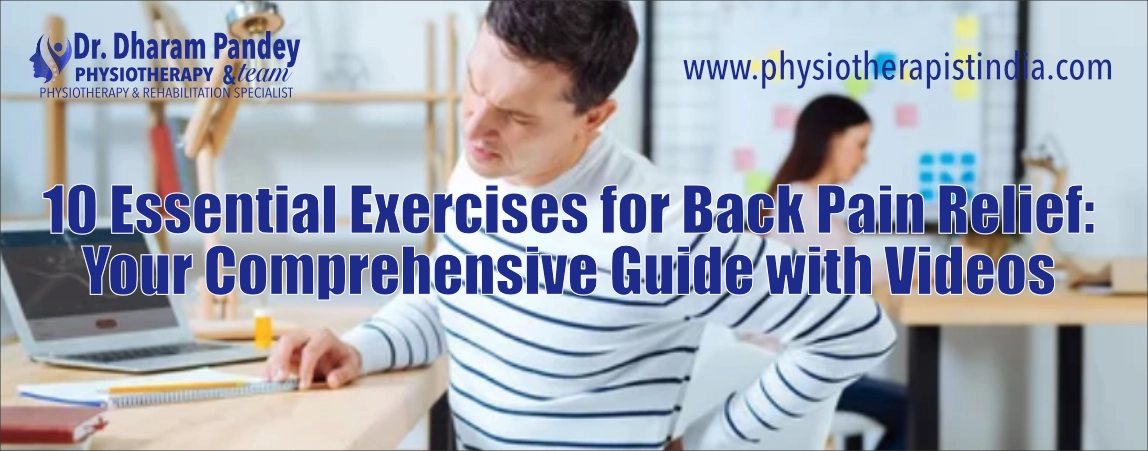WHAT WE TREAT
Rotator Cuff Repair Rehabilitation
Best Physiotherapist in Delhi
Rotator cuff repair is a common shoulder surgery. Learn about the rehabilitation process, exercises, and FAQs to regain strength and mobility.
Restoring Shoulder Strength and Function
The rotator cuff is a group of tendons and muscles in the shoulder that play a crucial role in maintaining its stability and mobility. When these tendons are injured or torn, it can lead to significant pain and limited functionality. Rotator cuff repair surgery is often recommended to address these issues. However, the road to recovery doesn’t end in the operating room. Post-surgery rehabilitation is a vital component of restoring shoulder strength and function.
Understanding Rotator Cuff Injuries
The Anatomy of the Rotator Cuff The rotator cuff consists of four main muscles: the supraspinatus, infraspinatus, teres minor, and subscapularis. Together, they work to provide stability and allow various shoulder movements.

A rotator cuff injury is a common condition
that affects the group of muscles and tendons that surround the shoulder joint, known as the rotator cuff. These muscles and tendons are responsible for stabilizing the shoulder and allowing for a wide range of motion in the arm. A rotator cuff injury can occur due to various causes, including:
- Overuse: Repetitive overhead motions, such as those seen in sports like baseball or tennis, can lead to overuse injuries of the rotator cuff.
- Trauma: A direct blow or fall on the shoulder can cause injury to the rotator cuff.
- Degeneration: Over time, the tendons of the rotator cuff can degenerate, becoming weaker and more susceptible to injury, especially in older individuals.
Common symptoms of a rotator cuff injury include:
- Pain in the shoulder, particularly when lifting the arm or during specific movements.
- Weakness in the affected arm, making it difficult to perform certain tasks.
- Decreased range of motion in the shoulder.
- A clicking or popping sensation in the shoulder.
Rotator cuff injuries can vary in severity, ranging from mild inflammation (tendonitis) to partial tears or complete tears of the tendons. Treatment options depend on the type and severity of the injury. Mild cases may respond well to rest, physiotherapy, and anti-inflammatory medications, while more severe cases may require surgical intervention to repair or reattach the torn tendons.
It’s important to consult with a healthcare professional if you suspect a rotator cuff injury to receive an accurate diagnosis and develop an appropriate treatment plan. Early diagnosis and treatment can help prevent the condition from worsening and improve the chances of a full recovery.
Rotator Cuff Repair Surgery
Indications for Surgery Not all rotator cuff injuries require surgery. Your healthcare provider will determine if surgery is necessary based on the severity of your injury and its impact on your daily life.
Surgical Procedure Rotator cuff repair surgery can be performed through open surgery or minimally invasive arthroscopic techniques. Your surgeon will decide which approach is best for your specific case.
Postoperative Rehabilitation
The Importance of Rehabilitation Postoperative rehabilitation is essential for regaining shoulder strength and mobility. It plays a critical role in preventing complications, such as muscle atrophy and frozen shoulder.
Rehabilitation Timeline Rehabilitation typically consists of several phases, each with specific goals and exercises.
Phase 1: Immediate Postoperative Phase
Pain Management Managing pain and inflammation is a primary focus during this phase.
Passive Range of Motion (ROM) Exercises Gentle, assisted exercises are introduced to maintain shoulder mobility.
Protection of the Repair Immobilization techniques, such as a sling or brace, are utilized to protect the surgical repair.
Phase 2: Intermediate Phase
Active Range of Motion Exercises Patients gradually begin actively moving their shoulder within pain-tolerable limits.
Strengthening Exercises Progressive resistance exercises are incorporated to build muscle strength.
Scapular Stabilization Scapular exercises help stabilize the shoulder blade, ensuring proper shoulder movement.
Phase 3: Advanced Strengthening Phase
Advanced Resistance Training Patients engage in more intense resistance exercises to further strengthen the shoulder.
Functional Exercises Functional movements that mimic daily activities are integrated into the rehabilitation routine.
Phase 4: Return to Sport/Work Phase
Sport-Specific Rehabilitation For athletes, this phase focuses on safely reintroducing sports-related activities.
Gradual Return to Work Individuals with physically demanding jobs will undergo work-specific training to ensure a safe return to employment.


Cutting-Edge Technology
Our commitment to using the best technology extends to various aspects of physiotherapy:
- Robotic Assistance: We employ robotics for gait training, aiding patients with mobility impairments. These devices facilitate improved motor control and muscle activation.
- Electrotherapy: Techniques like TENS, IFT, and Ultrasound Therapy are used to target pain relief and accelerate tissue healing.
- Virtual Reality (VR): We utilize VR and interactive gaming for engaging and enjoyable rehabilitation, increasing patient motivation and compliance with treatment.
Frequently Asked Questions
Reach out to us if you have further Questions - We're here to help!
FAQs: Rotator Cuff Repair Rehabilitation
Q1: How long does the rehabilitation process take after rotator cuff surgery?
The duration of rehabilitation varies, but it can take several months to regain full shoulder function.
Q2: Are there exercises I can do at home to aid in my recovery?
Yes, your physical therapist will provide a home exercise program tailored to your specific needs.
Q3: Can I drive during my rehabilitation process?
Your ability to drive depends on your level of pain, the type of surgery, and the use of pain medication. Consult with your surgeon.
Q4: When can I return to sports or physical activities after rotator cuff surgery?
The timing of your return to sports or physical activities depends on your progress and the recommendations of your healthcare team.
Q5: What are the potential complications of rotator cuff repair surgery?
Complications may include infection, stiffness, or re-tearing of the repaired tendon.
Q6: Can I avoid surgery through non-surgical treatments for rotator cuff injuries?
Some rotator cuff injuries can be managed non-surgically with physiotherapy and other conservative treatments, depending on the severity.
Q7: Is physiotherapy necessary after rotator cuff repair surgery?
Yes, physiotherapy is essential for a successful recovery and optimal shoulder function.
Q8: How can I prevent future rotator cuff injuries after surgery?
Proper conditioning and continued strength exercises can help reduce the risk of future injuries.
Q9: What are the signs of potential complications during the rehabilitation process?
Signs of complications may include increased pain, persistent swelling, and decreased range of motion.
Rotator cuff repair rehabilitation is a journey that requires dedication, patience, and guidance from healthcare professionals. With a well-structured rehabilitation program and a commitment to the process, individuals can expect significant improvements in their shoulder strength and function. Understanding the process, staying informed, and adhering to the guidance of your healthcare team are essential steps on the path to a successful recovery.
Have Questions or Need Assistance?
Don’t hesitate to reach out to us:
Book Appointment with Experts
- Call/WhatsApp: +9818911195
- Book Appointment with Experts
We are here to lend our support on your journey toward improved movement and overall well-being.
See all Blogs & Articles
See all Conditions we Treat
Note: Content provided here is for informational purposes only and is not a substitute for professional medical advice or diagnosis. If you believe you are experiencing pain or any other health-related issue, it is important to seek the advice of qualified healthcare professionals for a proper evaluation and treatment plan.
See all How it Works.









